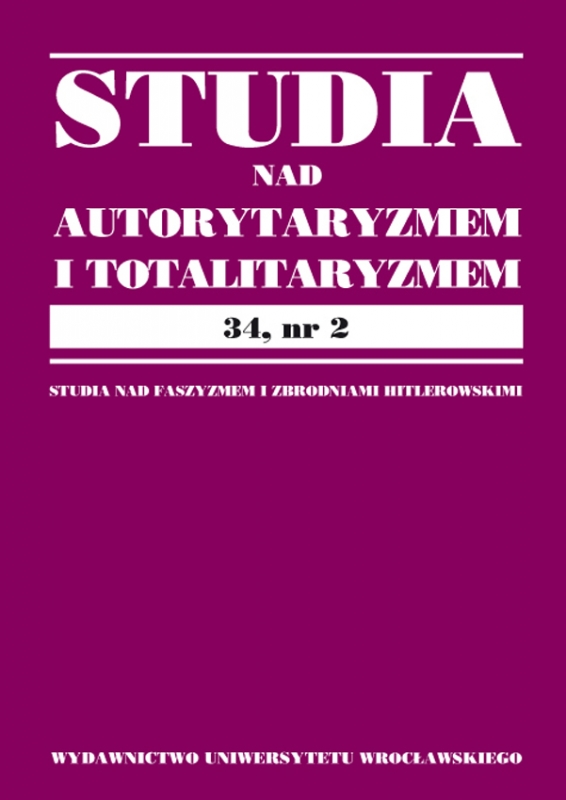

Artykuły

THE CATHOLIC CHURCH IN GERMANY DURING THE HITLERITE PERIOD. CONSIDERATIONS IN THE CONTEXT OF ERIC VOEGELIN’S POLITICAL THEOLOGY
The paper is an attempt to evaluate the activity of the Catholic Church in Germany during the Hitlerite period. The basic frame of reference to make such an assessment was provided by the conception — modeled after Eric Voegelin’s philosophical analyses and conclusions — of the Church’s “messenger’s mission” the essence of which was expressed in three compromises: with natural universe, with social-and-political world and with historical reality. Basing his research on many documents and historical works describing the Church’s actions and attitudes during the relevant period, the author tried to determine whether the Church had remained faithful to the most fundamental commandments regarding its mission in the world. The conclusion of this research proved negative and found its expression in a statement that in the Catholic Church in Germany there happened a destruction of the compromises of early Christianity which determined the universal character of its existence in society and history. The representatives of the Catholic Church in Germany preserved just the letter of the rules making up these compromises, simultaneously ignoring their spirit and essence. In consequence, they transformed the institution which they represented, aspiring to play the role of the mystical Body of Christ, into a strictly particular organization. The author — making use of the intellectual instruments and concepts derived from E. Voegelin’s thought — enriched his considerations in the paper with a final attempt to indicate general reasons for the adoption of such attitudes by the German clergy.